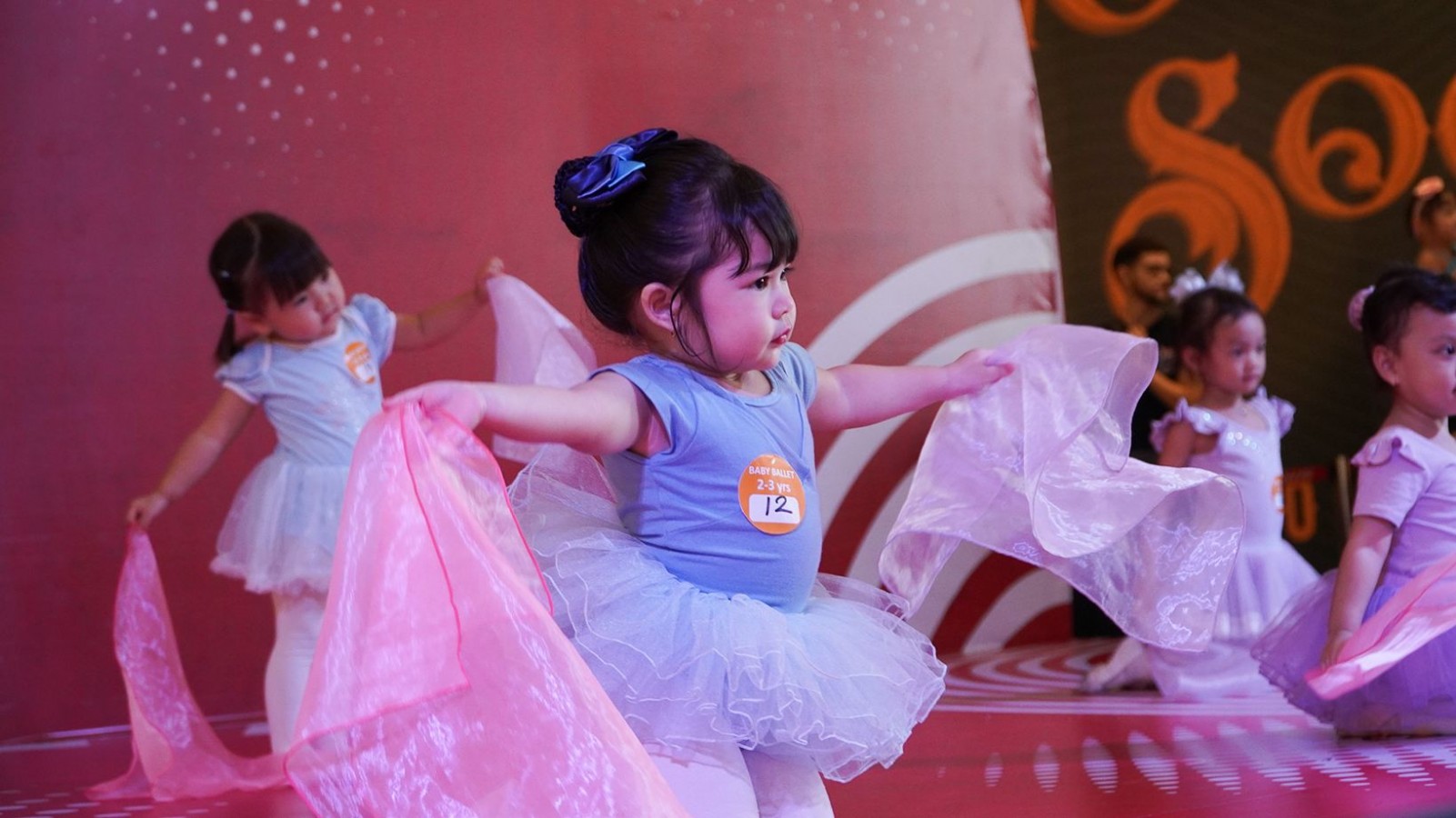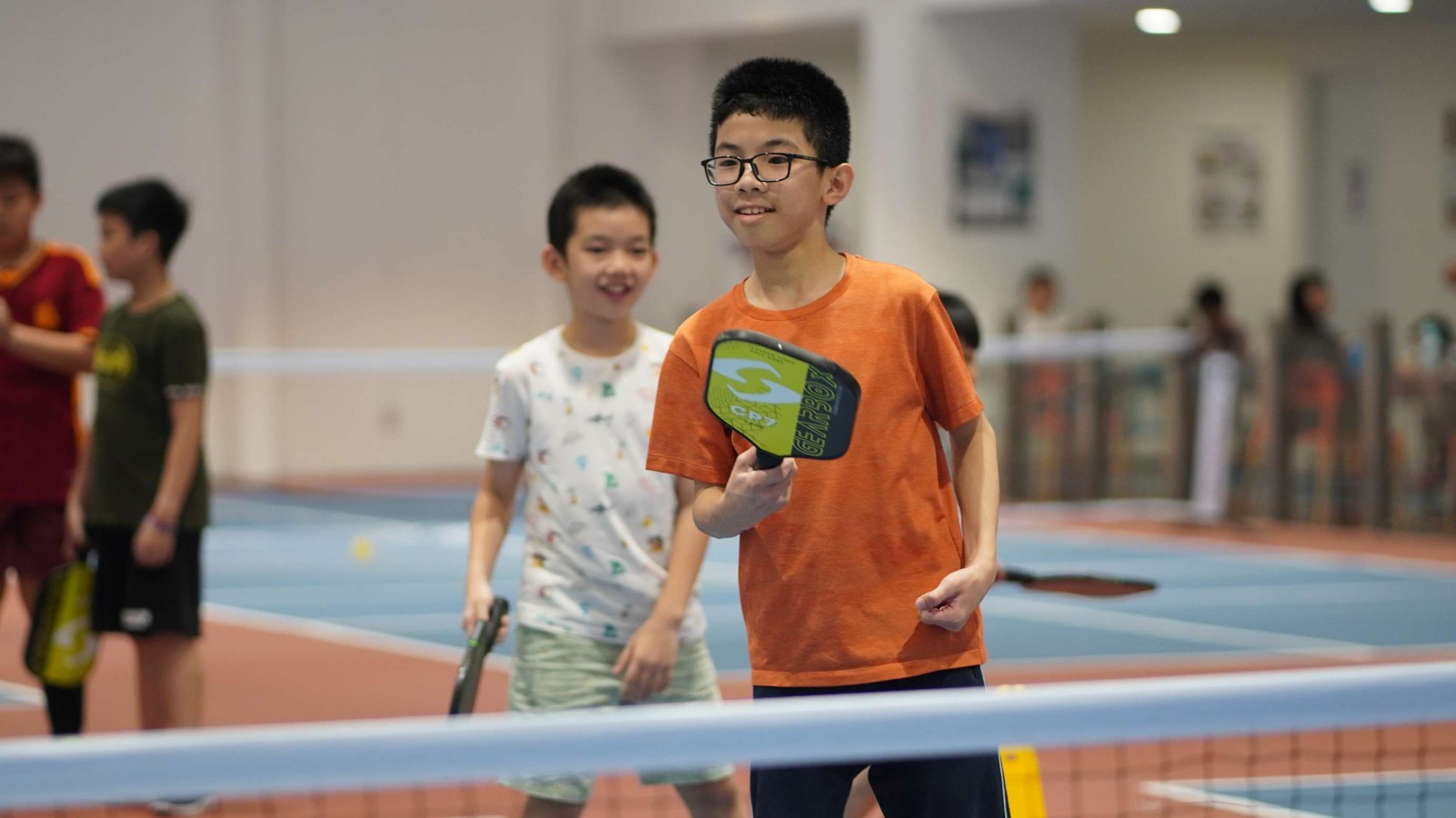Parents, This Is The Best Age to Start Ballet!

Many parents wonder about the ideal age to introduce their child to ballet classes. Understanding when to start can greatly influence a child's enjoyment and success in learning ballet techniques.
Here’s a comprehensive guide to help you determine the best age for your child to begin ballet, and why Rockstar Academy offers the ideal environment for budding ballet dancers in Indonesia.
What Is the Best Age to Start Ballet?
Ballet is a beautiful and disciplined art form that many parents consider for their children. But when is the best time to start ballet classes? Let's dive into this topic, providing clear explanations and examples to help you understand the ideal age for beginning ballet.
1. Baby Ballet Class (Ages 2-3): Introduction to Ballet
A baby ballet class designed for toddlers aged 2 to 3 years old offers a delightful introduction to the world of dance in a playful and nurturing environment. These young dancers engage in simple movements and exercises that enhance their motor skills, coordination, and balance.
The class typically includes fun activities such as imaginative play, basic ballet positions, gentle stretching, and rhythmic exercises set to music. Through these activities, children not only develop physical skills but also boost their social interaction, listening abilities, and self-expression. All while enjoying the joy of dance in a supportive atmosphere.
2. Early Childhood (Ages 3-5): Building Foundations Through Play
Children as young as three can start ballet classes. At this age, classes focus on basic movements and having fun. The goal is to introduce children to the joy of dance, rhythm, and movement in a playful environment.
Imagine a class where children dance to nursery rhymes, pretending to be butterflies or fairies. They learn to move gracefully, balance on one foot, and follow simple instructions, which helps develop coordination and listening skills. Interesting, right?
3. Kindergarten to Early Elementary (Ages 5-7): Developing Basic Skills
Between ages 5 and 7, children can begin to learn more structured ballet techniques. They have better control over their bodies and can follow more complex instructions. Classes still focus on enjoyment but also introduce basic ballet positions and movements.
Children will learn several foundation ballet moves such as practice pliés (bending the knees) and relevés (rising onto the toes) while holding onto the barre. These activities improve their strength and flexibility.
4. Elementary School Age (Ages 7-10): Building Technique and Discipline
From ages 7 to 10, children can handle more disciplined ballet training. They start learning proper ballet terminology, positions, and more intricate movements. This stage is crucial for developing a solid foundation in ballet technique.
Students might spend part of the class practicing tendus (stretching the foot out from the body) and dégagés (foot disengagements) to improve foot strength and articulation. They also begin learning simple choreography, which helps with memory and sequencing skills.
5. Pre-Teens (Ages 10-12): Preparing for More Advanced Training
Pre-teens are often ready for more intensive training. They can begin more complex exercises and longer classes. This is also the age where some may start pointe work, although this depends on their physical development and readiness.
They might have a class that includes a full barre routine, center work, and across-the-floor exercises. They usually practice pirouettes (turns) and jumps, building the strength and control needed for more advanced ballet.
6. Teenagers (Ages 13+): Intensive Training and Specialization
Teens who start ballet later or who have been training since a young age can handle rigorous classes that demand high levels of technique and artistry. They often specialize in ballet and may participate in performances and competitions.
A 14-year-old student usually attends ballet class several times a week, working on advanced techniques such as grand jetés (large leaps) and fouetté turns (whipped turns). They also perform in recitals and potentially audition for ballet companies or specialized programs.
Factors to Consider When Starting Ballet
Starting ballet can be a wonderful journey for a child, filled with creativity, discipline, and physical development. However, there are several key factors to consider to ensure a positive and productive experience. Here’s a detailed look at these factors:
A. Interest and Enjoyment
The most crucial factor is whether the child shows genuine interest in ballet. If the child is excited about dancing, this intrinsic motivation will drive their learning and growth. They’ll be more likely to practice, attend classes, and enjoy the process.
Forcing a child into ballet without their interest can lead to frustration and burnout. It's important to have open conversations with your child about their interests and preferences.
Observing their reactions to ballet-related activities, such as watching performances or participating in trial classes, can give you a good indication of their enthusiasm.
B. Fun and Engagement
Ballet should be fun and engaging, especially for younger children. Enjoyment in their activities leads to a more positive attitude and better learning outcomes.
Look for classes that incorporate games, stories, and imaginative play into the lessons to keep the experience enjoyable.
C. Physical Readiness
Children develop at different rates, and it's important to ensure they are physically ready for the demands of ballet. Typically, formal ballet training can start around age 5 or 6, but this can vary.
Ballet requires a certain level of physical coordination, balance, and flexibility. Observing your child's physical abilities and consulting with a pediatrician or a ballet instructor can help determine if they are ready to begin training.
D. Health Considerations
Ensuring that your child’s body is ready for the physical demands of ballet helps prevent injuries. Early training should focus on building strength and flexibility gradually. Qualified instructors will know how to adjust exercises to suit the child's physical readiness.
E. Consistency
Ballet requires consistent practice and regular attendance in classes. Make sure your child understands the commitment involved, especially as they progress to higher levels of training. This regular practice is essential for building skills and muscle memory.
Assess your family’s schedule and your child's other commitments to ensure they have the time and energy for ballet. Balancing school, ballet, and other activities requires good time management skills, which will also help them develop discipline.
F. Mental Readiness
Ballet training involves learning complex movements and techniques that require focus and patience. Your child should be ready to listen to instructions, practice diligently, and handle constructive feedback.
That’s why as parents, providing emotional support and encouragement is crucial. Celebrate their progress and help them navigate challenges. This support fosters resilience and a positive attitude toward their ballet journey.
G. Choosing the Right School
Select a reputable ballet school with a good track record. Research schools in your area, read reviews, and visit the studios. A good school will have a structured curriculum and a safe, supportive environment.
Ensure the instructors are well-qualified, experienced, and capable of teaching children at various stages of development. They should be knowledgeable about child development and able to provide age-appropriate instruction.
For a recommendation, you might choose Rockstar Academy ballet class. At Rockstar Academy, we take pride in offering the best ballet classes in Indonesia, backed by our membership with the prestigious Royal Academy of Dance (RAD).
Fully implementing the RAD's internationally recognized graded class system, our program is designed to encourage, motivate, and reward students of all ages through rigorous examinations and assessments.
Our ballet classes help students develop fundamental ballet skills such as Plié, Jetés, Fondus, Développés, and Sautés, while also building confidence, coordination, discipline, and flexibility.
Our ballet programs also include a curriculum that allows your children to participate in RAD Ballet Testing, Ballet & Contemporary Dance Recitals, Ballet Elite Championships and RockOlympics.
These opportunities are part of Rockstar Academy's commitment to facilitating gymnastics students in progressing to higher levels and preparing for national and international competitions.
Take Your Ballet Class Only in Rockstar Academy!
Choosing the right age to start ballet classes for your child depends on various factors, including physical readiness, cognitive development, and emotional interest. Rockstar Academy offers an enriching ballet program designed to nurture young dancers and cultivate their passion for dance.
With expert instructors, state-of-the-art facilities, and a supportive community, Rockstar Academy is committed to providing the best ballet education in Indonesia.
Give your child the gift of ballet and watch them flourish into confident, graceful dancers at Rockstar Academy. On top of that, we also offer a free trial class where you can experience our magic before enrolling!

FAQ
Can boys also join ballet classes at Rockstar Academy?
Absolutely, ballet is a discipline that benefits both boys and girls. We welcome aspiring male dancers to join our classes and explore the beauty of ballet.
How can ballet classes benefit my child beyond dance skills?
Ballet helps children develop discipline, perseverance, poise, and self-confidence. These qualities can positively impact their academic performance and social interactions.
What should my child wear to ballet classes?
We recommend comfortable dancewear such as leotards, tights, and ballet slippers. This attire allows for ease of movement and helps instructors observe and correct body alignment.



